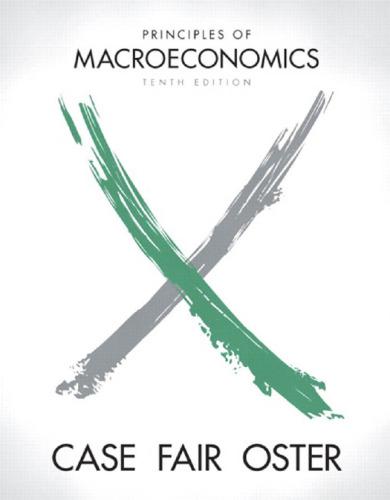The exchange rate between the U.S. dollar and the Japanese yen is floating freelyboth governments do not
Question:
The exchange rate between the U.S. dollar and the Japanese yen is floating freely—both governments do not intervene in the market for each currency. Suppose a large trade deficit with Japan prompts the United States to impose quotas on certain Japanese products imported into the United States and, as a result, the quantity of these imports falls.
a. The decrease in spending on Japanese products increases spending on U.S.-made goods. Why? What effect will this have on U.S. output and employment and on Japanese output and employment?
b. What happens to U.S. imports from Japan when U.S. output
(or income) rises? If the quotas initially reduce imports from Japan by $25 billion, why is the final reduction in imports likely to be less than $25 billion?
c. Suppose the quotas do succeed in reducing imports from Japan by $15 billion. What will happen to the demand for yen? Why?
d. What will happen to the dollar–yen exchange rate? Why?
(Hint: There is an excess supply of yen, or an excess demand for dollars.) What effects will the change in the value of each currency have on employment and output in the United States? What about the balance of trade? (Ignore complications such as the J curve.)
e. Considering the macroeconomic effects of a quota on Japanese imports, could a quota reduce employment and output in the United States? have no effect at all? Explain.
Step by Step Answer:

Principles Of Macroeconomics
ISBN: 9780374146412
10th Edition
Authors: Karl E. Case, Ray C Fair, Sharon C Oster






